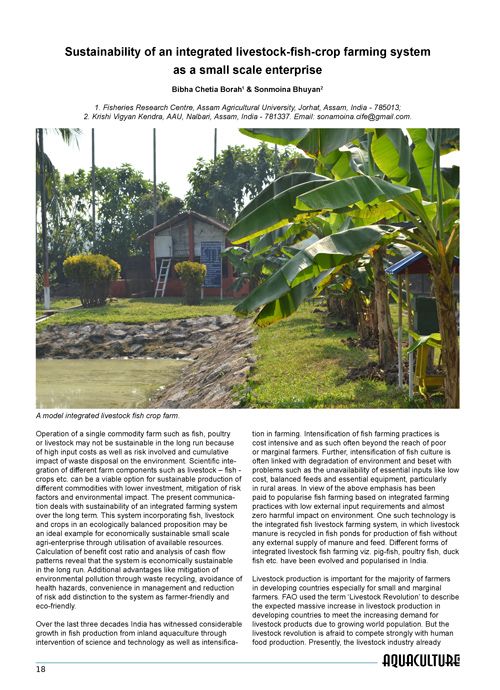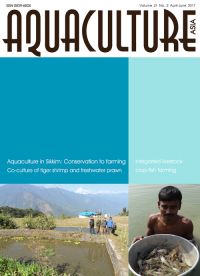Sustainability of an integrated livestock-fish-crop farming system as a small-scale enterprise
7 June 2017 | Bibha Chetia Borah and Sonmoina Bhuyan | 2419 Downloads | .pdf | 1.82 MB | Better management practices, Freshwater finfish, India, Inland aquaculture, Nutrition and feeding, Environment and Sustainability
We examined the sustainability and economic viability of a model integrated livestock-fish-crop farming system developed by the Fisheries Research Centre, Assam Agricultural University, over an extended period of 13 years. The system was developed as an ecologically sustainable alternative technology for small and margin farmers. It incorporates two livestock components, pig and poultry, with horticulture and carp polyculture.
Analysis of cash flow and benefit-cost ration revealed the system to be economically sustainable over the long term. Recycling of wastes from one compartment as inputs for another reduced costs and environmental impact, while mitigating issues such as the unavailability of formulated feeds in rural areas. The cost of fish production was reduced by 60-70%, while pig production cost was reduced by 50-60% and horticulture by around 60%. We conclude that scientific integration of different farm components can reduce production costs, risk and environmental impact.
Creative Commons Attribution.

